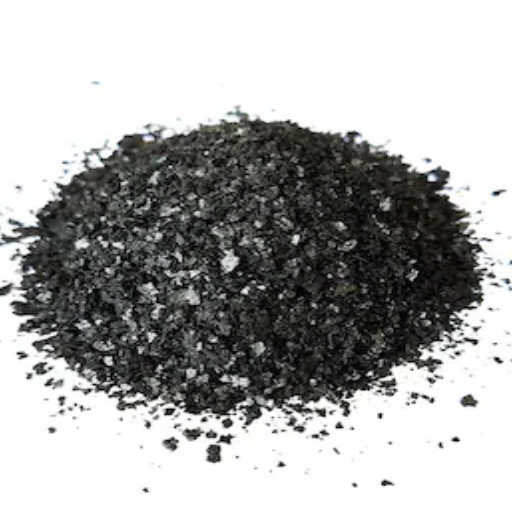Potassium humate fertilizer has become an essential component in modern agriculture, valued for its ability to improve soil structure, enhance nutrient absorption, and promote healthier plant growth. Whether you are a large-scale farmer, a home gardener, or an agricultural consultant, sourcing high-quality potassium humate fertilizer is critical for achieving optimal results. However, identifying reliable suppliers and understanding the options available in today’s market can be challenging. This guide is designed to simplify your search, offering expert insights and practical advice on where to buy potassium humate fertilizer that meets your specific needs.
Understanding Potassium Humate
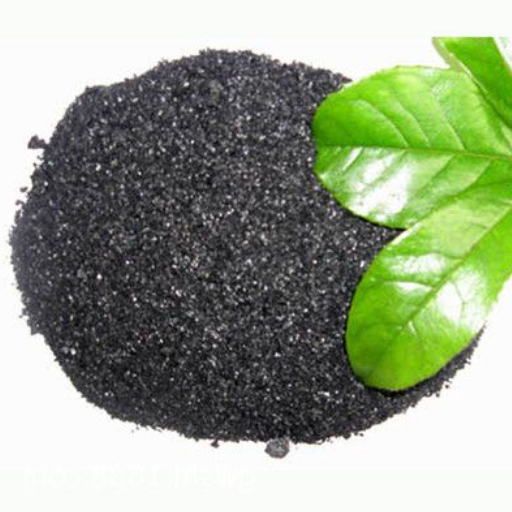
What is Potassium Humate?
Being a water-soluble product of humic acid extracted from deposits naturally present in leonardite or lignite, Potassium humate finds application in agriculture as a soil conditioner and fertilizer additive in improving soil structure, nutrient absorption, and ultimately plant growth. Potassium humate is most sought after for increasing crop yields and other instances of sustainable farming.
The compound is facilitating soil microorganisms while restoring soil fertility and retaining the capability for essential nutrients such as nitrogen, phosphorus, and potassium. Its roles also include retaining water, reducing erosion, and curbing leaching. Promoting root development and environmental stress resistance, along with general vitality, is what Potassium humate does for plants.
Possibly an environmentally friendly solution for modern agriculture, potassium humate waterproofs the need for chemical fertilizers while maintaining productivity. It can easily be coupled with other fertilizers and can be applied either by soil treatment or foliar spray, making it appropriate to various crops and different soil types. Using potassium humate will allow farmers to achieve higher crop quality and help improve long-term soil sustainability.
Benefits of Using Potassium Humate Fertilizer
- Soil Structure: Potassium humate enhances the aggregation of soil by binding soil particles, allowing aeration and water retention. According to researchers, soil water-holding capacity can increase by up to 30 percent with the regular use of humic substances.
- Efficiency in Absorption of Nutrients: Potassium humate makes the process of absorption of nitrates, phosphates, and micronutrients by plants more efficient by chelating those essential nutrients. Studies claim that nutrient uptake increases by 40% with the addition of humic substances together with inorganic fertilizers.
- Stimulates Root Growth: Potassium humate boosts root growth and development of biomass. With a better root system, plants can go deeper into the soil and draw more nutrients, which, in turn, aids in better growth and larger yields.
- Activity of Soil Microbes: The organic matter in potassium humate provides energy to the beneficial soil microbes, keeping a perfect balance for the regeneration of soil status and nutrient cycling.
- Mitigating Effects of Environmental African-Stress: Potassium humate enhances the plants’ resistance to varied abiotic stresses such as drought, salinity, temperature fluctuation, etc. It helps in regulating the hormone levels within the plant, reducing the losses in yields due to untoward conditions up to 25 percent, as reported by experimental evidence.
How Humic Acid Enhances Soil Health
Being paramount to soil health, humic acid serves modifications of soil structure, retention of water, and nutrient availability, among others. It has binding properties in respect of soil particles to form stable aggregates, in turn favoring porosity and air movement. It would be much more convenient for roots to go deep into the soil if this structural improvement takes place; plant growth, in turn, flourishes.
In addition, the acid acts as a natural chelating agent, keeping the minerals attached to its atoms, thus making essential nutrients such as iron, magnesium, and calcium available for the plants. Soils with humic acid may experience a higher level of cation exchange capacity (CEC), where nutrients will be stored, and leaching losses curtailed, providing a good environment of fertility in the long run. This process tends to lessen heavy dependence on synthetic fertilizers.
For more, humic acid increases microbial diversity by supplying adequate carbon sources to microorganisms in the soil. Beneficial microbes perform the functions of degrading organic matter, nutrient cycling, and maintaining the balance of soil ecosystems. Support to soil microorganisms by humic acid assures better sustainable soil management and the ability to resist environmental stress.
Identifying Quality Products
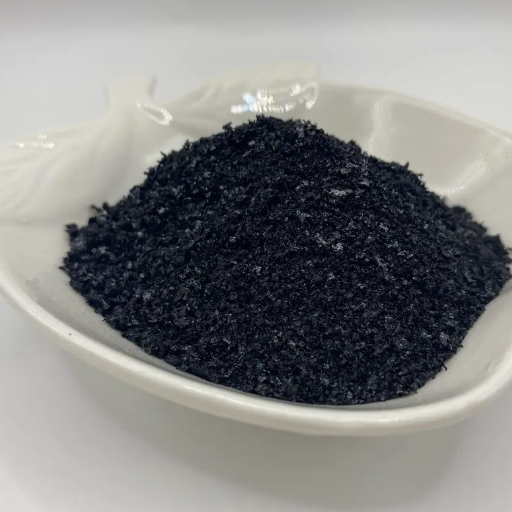
Understanding Product Labels and Certifications
Labels and certifications mentioned on the product require understanding so consumers may be well-informed while purchasing. The label of any product generally cites ingredient composition, the name of the manufacturer, expiration dates, and usage instructions. With soil-enhancement products such as humic acid, it becomes necessary that the labels indicate active components’ concentration, such as percentages of fulvic acid and humic acid, to help check for product standardization.
Whilst certifications ensure the confirmation of quality and safety attributes of a product, an OMRI certificate or ISO Standard certificate, in the case of agricultural and soil products, would certify that the product complies with particular environmental, health, and organic farming criteria. Also, certifications given by regulatory bodies provide guarantees from such bodies that this product complies with specific legislations.
When in search of the real value of label claims, look for third-party testing evidence or claims adherence to industry standards. Detailed certifications can often be verified against official databases or those of regulatory bodies, where possible, thus allowing users to authenticate the status of the product in question. Accurate interpretation of product labels and certifications, combined with the latest documentation, helps consumers confidently choose products that satisfy not only their functional requirements but also environmental criteria.
Evaluating the Concentration of Humic Acids
Determination of the concentration of humic acids in a product requires an orderly and well-established approach to analytical chemistry. Because of the need, various techniques have been developed within the industry. A widely practiced method is spectrophotometry; measuring UV-Vis absorption at selected wavelengths provides an avenue for humic substance quantification. Methods of this nature apply rapid means to evaluate the concentration of humic acid, thus being efficient and reproducible. On the other hand, gravimetric analysis precipitates humic acids through acidification and is useful for proper quantification.
Chromatographic methods such as HPLC and size-exclusion chromatography are basically employed by modern practitioners for the final fingerprinting of humic acid molecules and their distribution within the samples; such advanced techniques will provide scientists with an appreciation of product quality and uniformity.
From the interpretation of the test results, it would be highly recommended to ensure that the tested material passed the more standardized tests, such as those laid down by the International Humic Substances Society (IHSS). In doing so, then, when coupled with advanced tests, one can measure, in a manner accurate and consistent, humic acid concentrations, thereby increasing product transparency for the manufacturer and consumer alike.
Comparing Organic vs. Chemical Fertilizers
Organic fertilizers reinforce soil structure, are slow in the release of nutrients, and are said to be environmentally friendly; on the contrary, chemical fertilizers are fast-acting, cheap, but sometimes considered to be unfriendly to the environment and soil health.
|
Aspect |
Organic |
Chemical |
|---|---|---|
|
Origin |
Natural |
Synthetic |
|
Release |
Slow |
Fast |
|
Environment |
Friendly |
Risky |
|
Expense |
Higher |
Lower |
|
Soil Impact |
Enhances |
Depletes |
|
Frequency |
Less |
More |
|
Toxicity |
Safe |
Harmful |
|
Effect Speed |
Gradual |
Instant |
|
Duration |
Long-lasting |
Short-lived |
|
Trace Nutrients |
Present |
Often lacking |
Where to Buy Potassium Humate
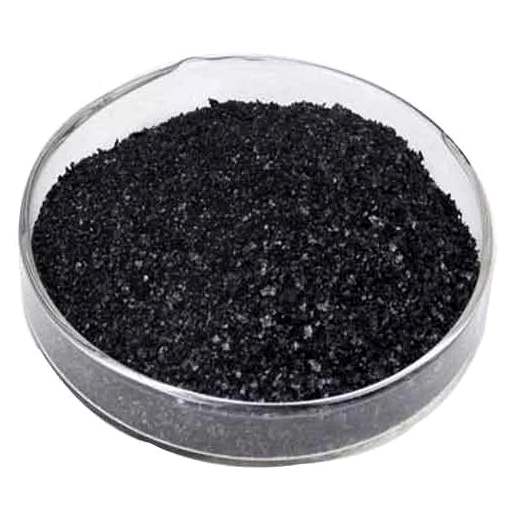
Online Retailers: Pros and Cons
Online retailers serve as a convenient platform for procuring potassium humate and present a plethora of options from manufacturers spread across the world. One of the greatest factors for choosing such an avenue is the facility for easy comparison shopping, where buyers can assess the prices or quality, and read reviews without actually having to visit the stores. Furthermore, most online stores provide detailed descriptions of the item, technical specifications, and instructions for use, helping buyers make a more informed decision. Other advantages, such as occasional discounts, offers on bulk deals, and home delivery, also make it a convenient choice, saving great amounts of time and money for the end user.
Nevertheless, potassium humate buyers may find some pitfalls to online buying. Primarily, there is always an innate suspicion surrounding product authenticity when buying from third-party sellers or unknown vendors. Buyers may find themselves dealing with issues like counterfeit products or misbranding. Secondly, depending on the seller’s location and choice of logistics, shipping charges and time could vary drastically, sometimes to an extent where delays or exorbitant costs become an issue. Also, verification of claims on purity, granule size, or quality could become quite taxing when the buyer does not have the option of physically assessing the product, especially for ones who are new to the material.
To mitigate such risks, one must consider buying potassium humate from reputable online retail outlets that are certified or in partnership with well-known agricultural suppliers. Likewise, it is also imperative to check customer reviews and seller ratings, and certifications from within the industry to maintain quality and ensure authenticity. Also, the buyer can review the seller-provided technical data sheets (TDS) and Material Safety Data Sheets (MSDS) in confirmation that these adhere to agricultural standards. By exercising such due diligence, buyers can be sure of leveraging the convenience of online shopping without compromising on either the effectiveness or the safety of the potassium humate they buy.
Local Agricultural Stores: What to Look For
There are risks of counterfeit products or compromised quality of potassium humate if purchased from local agricultural stores, so check carefully for important aspects. For technical specifications, labels, and packaging will give you much excellent information from concentration levels to solubility and purity. A product from a reputable manufacturer will have a batch number and production date on it, making it traceable and allowing you to ascertain whether you have received a fresh product or not.
Ask also whether the product has been certified or subject to some quality standards; for instance, it may have an ISO certification or meet local agricultural regulations. The ability of staff to render suitable support should also be considered; competent staff, based on the type of crops and soils considered, can guide you further on the use of the products.
An efficient supply chain ensures that stores have current stock with minimal chance of selling expired or inferior products. Enquire as to whether the store arranges for regular quality control checks or partners with reputable suppliers. Leveraging agricultural professionals’ expertise along with independent research would enhance your ability to secure a product that meets your very specific agricultural requirements. A very practical way to protect your investment and encourage sustainable agriculture.
Pricing and Packaging Options
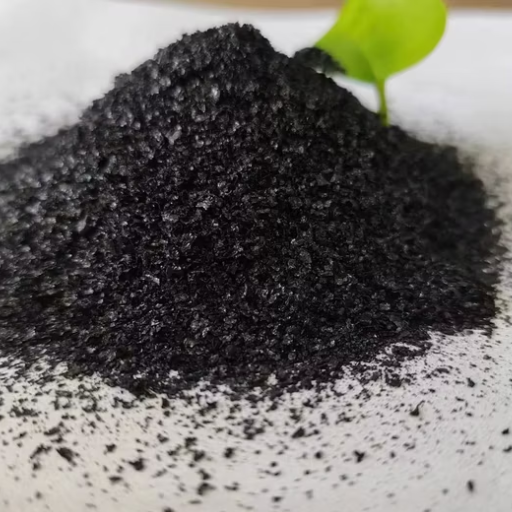
Comparing Potassium Humate Prices
Potassium humate prices vary on the basis of production source, grade, form (powder/granular/liquid), and demand in the market. Raw materials and extraction methods are an issue of concern; those products extracted from higher quality leonardite or lignite are more efficacious and will be sold accordingly. Different packaging sizes will sell at different rates per unit, where buying in bulk is cheaper than buying in small retail-size packages. Among other things, sudden changes in the cost of agricultural inputs and fluctuations in logistics around the globe will add to the variation in price.
To show the current state of affairs, bulk granular potassium humate currently sells for $800-$1,200 per metric ton, according to the purity levels and the reliability of the supplier. Liquid forms, being an application-friendly option, are being sold almost anywhere from $3 to $10 per liter in concentrated forms. Buyers should consider vendor certifications, third-party test results, customer reviews, and measure whether the price is justified by the quality claims made.
Professionals can then use this market data, coupled with real-time updates from agricultural or trade platforms, in evaluating price-to-performance ratios or any purchasing activities. Search results alone should not be relied upon before the verification of supplier credibility and product standards, because price does not give value for money or give a guarantee of performance in agricultural situations.
Understanding Different Packaging Sizes
Choosing the right packaging size for potassium humate is crucial when considering agricultural uses. Packaging sizes for this product may range from 1-kg bags to large 25-kg sacks or even huge one-ton industrial IBC totes for commercial use on an industrial scale. These come in sizes to suit varying operational requirements, depending on the application scale and utilization frequency. While small packets allow ease of use and flexibility of applications for small-scale farmers or trials, large quantities suit large farms that can purchase bulk products at a discount.
Another aspect affected by packaging size is logistics and storage. Less bulky packaging makes it easier to transport, plus it may allow a user to be very precise with their application rates, reducing wastage. The bulk packaging decreases the unit price and frequency of re-stocking, but it needs proper storage, like a dry environment, to maintain product integrity. Also, packaging material can differ significantly; some suppliers could go as far as offering moisture-resistant or UV-protective packages to go on and increase product shelf life, factors worthy of consideration in your purchase decision.
Being able to quantify, at least in theory, the trade-off that exists between packaging size, price, and handling requirements can be a real advantage when it comes to setting up your operational work. Carefully assessing the scale of your agricultural project, how much budget is available, and how much storage capacity you have could allow you to choose a packaging size that works with all of these factors to your advantage. For example, in terms of purchase costs for potassium humate, buying large quantities usually translates into a lower cost per kilogram, but without adequate storage, prolonged exposure to environmental elements can degrade the quality of potassium humate, counteracting the very benefits intended to be achieved with its use. Therefore, allocating packaging size with consideration of practical use and cost effectiveness is what will ensure that the endeavor turns into a really worthwhile investment.
Finding Competitive Prices without Compromising Quality
The neutrally priced potassium humate without compromising quality calls for an approach with costs kept under consideration, with performance standards. Begin your search by looking for reputable suppliers that deal with agricultural-grade products and are known for consistency and reliability. Direct inquiry, industry forums, and customer reviews provide an in-depth look into the reputation of suppliers. Moreover, certification schemes and third-party testing could be considered as means of guaranteeing product quality so that the potassium humate procured conforms to the technical specifications required.
Using comparative analysis tools and platforms for gathering supplier data would be in favor of an informed judgment. Price benchmarking, supplier ratings, and customer satisfaction feedback are often compensated by those tools. It is of utmost importance to insist upon receiving product data sheets of great detail, as well as samples for testing, if somehow possible, to ascertain whether the product is fit for its intended use-if solubility and pH range are crucial for a particular application, along with the content of organic matter, then the potassium humate must adhere to those basic technical criteria that should be paramount in price comparison. A product choice based on statistics can help buyers realize the ones that do not kill product integrity at the expense of their wallets.
Partnering long-term with suppliers may then bring forth a win-win situation for sustainable cost efficiency. Such arrangements of long-term contracts or bulk purchases with trusted suppliers normally secure rate discounts and favorable service terms, but in return, the contract must provide for seller quality control obligations such as periodic testing of the product and adherence to stringent product delivery timelines. When these three elements-the search and analysis of the market with the aid of technical tools, along with a strategic alliance with the supplier-are combined, competitive prices can be found that guarantee quality standards and give operational value, thereby maximizing the potential of potassium humate in agriculture.
Practical Tips for Buyers
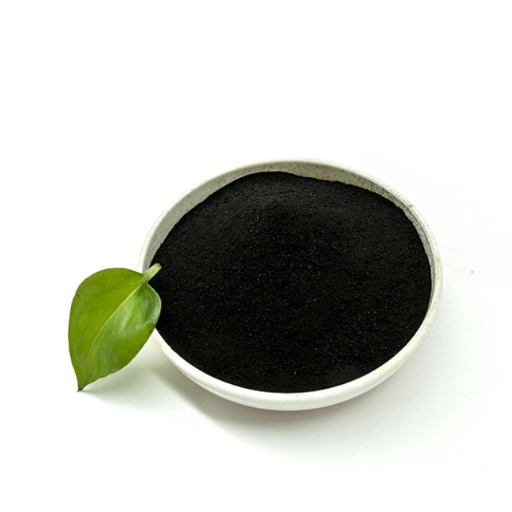
Selecting the Right Potassium Humate Product
Choosing the right potassium humate product requires knowledge of both its physical and chemical properties and an understanding of the specific agricultural needs involved. The buyer must consider the rate at which the product dissolves; this determines its usability in irrigation systems alongside foliar sprays. Hence, a high value for solubility is needed to deliver nutrients efficiently while avoiding sedimentation. Potassium humate manufacturers can claim various levels of potassium humate percentage; the higher the percentage, the better its efficiency as a soil conditioner and enhancer in nutrient absorption.
It is important to ascertain the material the product is made of. Being made from natural, organic leonardite usually results in a better quality potassium humate, mainly because it has a larger percentage of bioactive compounds relative to synthetics. Buyers must assess the pH range of the potassium humate in order to confirm that it will best complement the soil conditions and crop requirements rather than create a new imbalance.
Additionally, evaluations of certification and quality test reports should be done to ascertain that the product is aligned with industry standards. Testing for impurities such as heavy metals would ensure its safety for long-term use. Depending on whether granule, powder, or liquid is favorable for the intended mode of application, the same should be considered at purchase to improve operational efficacy. A dual-front approach, combining product information with tailor-made agricultural needs, yields better returns while being cost-effective.
Understanding the Function of Fulvic and Humic Acids
Fulvic and humic acids are crucial components in soil health and plant nutrition, as they are elements of humic substances that are derived from organic matter during its decomposition. Fulvic acid is smaller in size and, with a relatively higher content of oxygen atoms, it dissolves in water at any pH level. It thus chelates minerals that enhance nutrient uptake by plants. It also facilitates the transport of micronutrients such as zinc, magnesium, and iron across cell membranes into the plants, thereby directly aiding their absorption by the roots.
Contrarily, humic acid, of larger molecular size with lesser solubility, is designed especially for soil improvement. It increases cation exchange capacity (CEC), thus improving soil nutrient retention and release needed for plant growth. It also helps retain water in sandy soils and improves drainage in heavier clay soils-the best condition for building sustainable crop growth.
In general, the synergistic effects of fulvic and humic acids enhance soil fertility, eco-microbial activity, and plant resistance to environmental stresses. Research indicates that managing the soil with fulvic and humic acids increases crop productivity and quality while also promoting sustainable agricultural methods, such as reduced applications of chemical fertilizers.
Ensuring Product Solubility for Optimal Use
Solubility is a key factor for the effectiveness and uniform application of agricultural products, especially those containing fulvic and humic acids. Products of these categories must be fully soluble so that they may be smoothly integrated into irrigation, fertigation, and foliar application. When a product is poorly dissolved in water or its solubility is incomplete, the consequence would be clogging of equipment and uneven nutrient application rate, halting the absorption process, and compromising efficacy with crop health and yield. An adherence to formulation requirements and preparation methods is what ensures these substances are transmitted to the plants without obstruction or loss in their bioavailability.
One important issue for consideration in solubility optimization is that of water quality. The variable pH, temperature, and mineral content in water all affect the rate of dissolution of these fulvic and humic acids. Neutral or slightly acidic water qualities (pH range 6.0-6.5) are usually deemed proper in maintaining solubility and thus avoiding precipitation of active compounds. Some studies have pointed out that increased water temperature promotes solubility as the movement of molecules increases; however, very high temperatures should be discouraged as they result in the degradation of sensitive organic matter. Water, therefore, should be preliminarily tested and conditioned for hardness before mixing with the product, so as to lessen compatibility problems.
In recent years, upgradation of processing methods has enabled micronized and liquid humic-acid products that exhibit better dissolution and usability characteristics as compared to traditional granular or powder-type products. Enhanced formulations allow for a reduction in dissolution time so that mixing requirements can be minimized, thereby offering better ease of handling by larger agricultural applications. Osmotic potential was found to increase almost up to 15% when nutrients were absorbed by crops using improved techniques in conjunction with precision agriculture. Hence, agrarian organizations must look at the enhancement as a device in their integrated approach to sustainable and effective cultivation.
References
Frequently Asked Questions (FAQ)
Q: Where can I buy potassium humate fertilizer for my vegetable garden?
A: You can buy potassium humate fertilizer for your vegetable garden at local gardening stores, online retailers, and agricultural supply shops. Make sure to check for high-grade options that can improve plant growth and enhance soil quality.
Q: What is the best place to purchase potassium humate fertilizer for hydroponics?
A: For hydroponics, it’s ideal to buy potassium humate fertilizer from specialized hydroponics suppliers or online platforms that cater to hydroponic gardening. Look for products that are specifically designed for water-based systems.
Q: How can potassium humate fertilizer benefit my flower garden?
A: Potassium humate fertilizer can improve moisture retention in your flower garden, promote biological activity in the soil, and enhance nutrient uptake, leading to healthier and more vibrant blooms.
Q: Are there any recommended brands for potassium humate fertilizer?
A: Some popular brands of potassium humate fertilizer include Super Humate and other high-grade humic and fulvic acid products. Check reviews and product details to ensure they meet your gardening needs.
Q: How much potassium humate fertilizer should I use per lb of soil?
A: The recommended application rate can vary, but generally, you can use about 1-2 lbs of potassium humate fertilizer per 100 square feet of soil. Always refer to the packaging for specific instructions.
Q: Can potassium humate fertilizer be used for fruit trees?
A: Yes, potassium humate fertilizer is beneficial for fruit trees as it helps improve soil structure, enhances nutrient availability, and boosts overall plant health, leading to better fruit production.
Q: Where can to buy potassium humate fertilizer in bulk for field crops?
A: For field crops, you can purchase potassium humate fertilizer in bulk from agricultural supply companies or directly from manufacturers. This is often more cost-effective for larger farming operations.
Q: Is potassium humate fertilizer safe for use around pets and children?
A: Potassium humate fertilizer is generally considered safe when used as directed. However, it’s always a good practice to keep pets and children away from treated areas until the fertilizer has been absorbed by the soil.
Q: What types of soil can benefit from potassium humate fertilizer?
A: Potassium humate fertilizer can benefit various types of soil, including sandy, loamy, and clay soils. It helps improve soil structure, moisture retention, and nutrient availability, making it suitable for different gardening needs.



